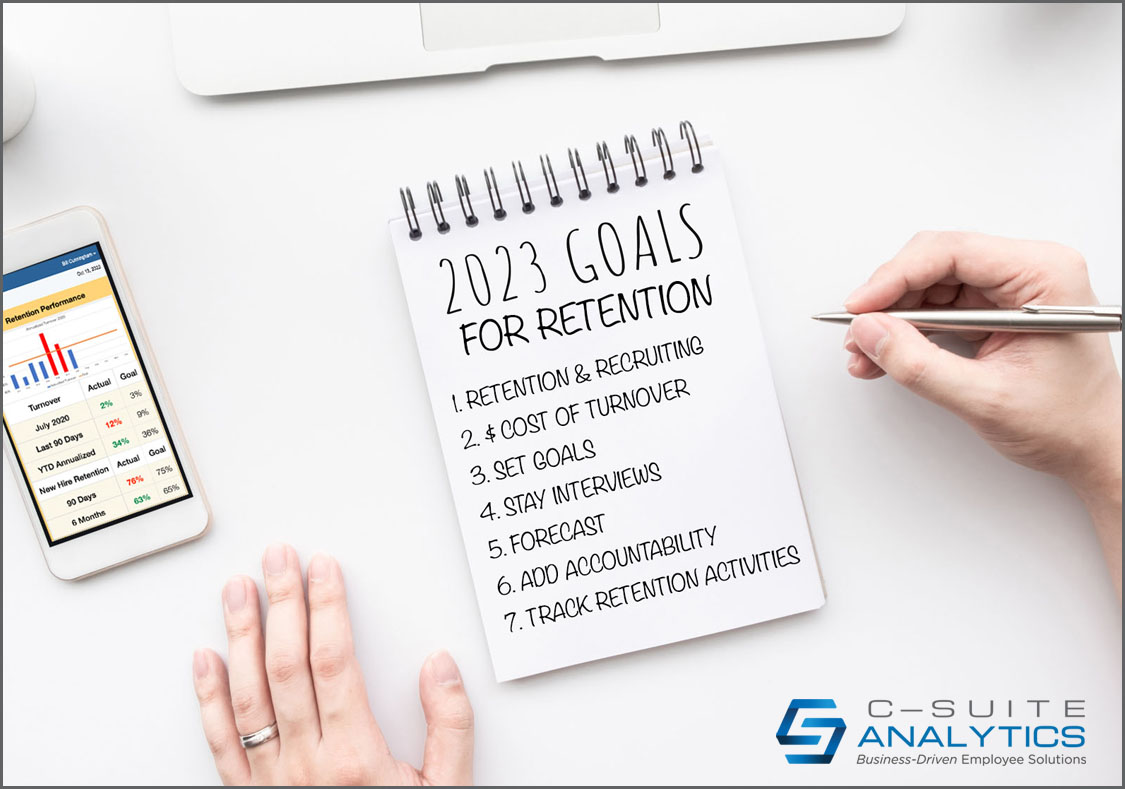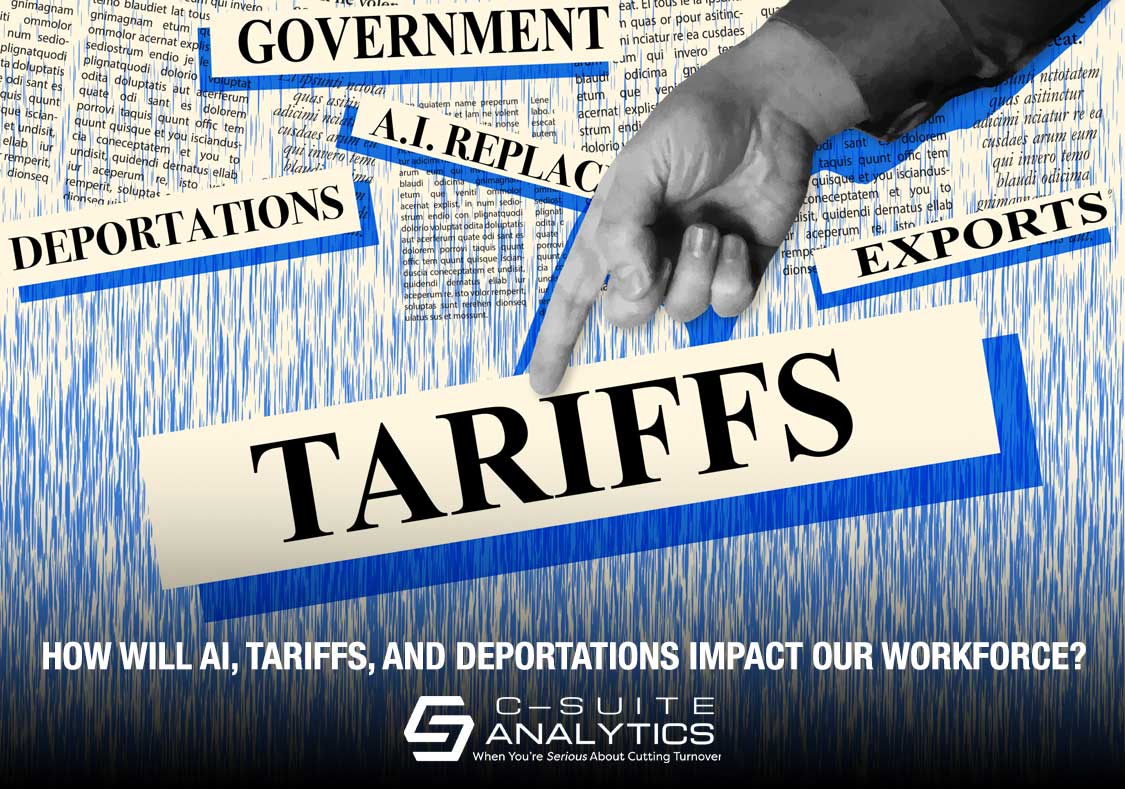AI, deportations, tariffs, and birthrate declines are reshaping America's workforce—blue- and white-collar alike. From baby boomer exits to AI disruptions, breaking down the workforce challenges no leader can afford to ignore.
7 Employee Retention Resolutions for 2023

During the holidays my wife dragged me along for my first-ever pedicure…an experience I’ve joyfully resolved to repeat during 2023. Which brought to mind this list. What should every company resolve to do in order to cut turnover during this shiny new year? Below is my suggested list of ideas. Note which of them will be new for you, that you are not doing now.
Let’s Start Our Employee Retention Resolution List
- Make retention at least as important as recruiting. Your organization pays HR people specifically to recruit to fill open jobs, meaning to post jobs, interview candidates, maybe even make hiring decisions. There are budgets for these recruiter jobs and these activities. What do you do that is similar for improving retention?
The mystifying part of this question is that most companies have no actual plan for retention, or at least a plan that works. They associate retention with engagement surveys, exit surveys, pay, benefits, onboarding…all of the usually-connected HR stuff. The following resolutions will actually provide a plan that cuts turnover.
And by the way, several studies are now saying that new hires remain with your company for shorter periods of time than ever before. So recruiting without retention really is like a dog chasing her tail. Let’s not be doggies.
- Involve finance in putting a cost on turnover. Most CFOs come to work each day scanning their reports for ways to improve revenue and cut costs. Their net dollar outcomes are like searching for quarters in the couch compared to cutting the turnover they associate with HR which is around the corner or down the hall.
Related, reporting turnover by percentage alone is like speaking Japanese to CEOs. They and their CFO compadres are conditioned to speak dollars only. And the true cost of turnover would alarm them…so they need that alarming moment to fulfill the responsibilities of their jobs. The absolute best turnover cost calculator is available to you for no cost at on our website. Put it to use, but only if a finance rep is beside you when using it.
- Establish two goals for turnover and build tops-down operations accountability. Set goals to improve company-wide turnover and also new-hire retention, showing at least a 20% improvement for both. Tell operations managers they are responsible for both outcomes and include HR accountability for the new-hire goal. Develop reports that finger who is achieving their goals and who is not.
The number one reason employees stay or leave is how much they trust their boss. That trust is built or broken by each employee’s experience with day-to-day work including relationships with their boss, their colleagues, and their duties. The one person who has most influence over these relationships is that employee’s direct supervisor. Retention won’t improve unless you hold that person accountable to improve it.
- Train supervisors top to bottom to conduct Stay Interviews. I invented Stay Interviews with a top-selling book in 2012 because leaders on all levels need an interactive way to build trust with each member of their teams. Training is complex because leaders need to learn to ask five carefully-scripted questions, take notes, probe to learn more, and take responsibility for outcomes versus blame others. But when the five initial questions are converted to twenty questions due to solid listening and well-developed probes, leaders leave the room with pages of notes that make building a one-on-one retention plan do-able for each individual employee.
- Then ask leaders to forecast how long each employee will stay. Make this essential task easy by using a traffic light approach with green meaning that employee will be here in a year, yellow indicating will be gone in 6-12 months voluntarily or involuntarily, and red to indicate less than six months. Tell supervisors they can change their forecast any time but will be ultimately accountable for their ability to know their employees so well that they can predict when they will leave.
- Then build accountability systems the same way you do for other top objectives. We’re going to do something new this year with clients. Once their executives agree to turnover’s costs and the resulting two retention goals, we will ask those executives where retention fits against other high-priority goals like revenue, expenses, safety, and the like. Then we will ask them to identify precisely how they hold leaders accountable for those higher-priority outcomes, and subsequently that they hold leaders accountable for retention in identical ways. Same types of reports, same agenda items in key management meetings.
This is our client playbook, the solutions we apply to consistently cut turnover by 20% and more. There is no mention of pay, benefits, employee surveys, and we have no interest in exit survey results. Just start from scratch by basing all solutions on first-line leaders building trust and becoming accountable for their talent. Our two key metrics are do leaders make their goals and do they develop accurate forecasts…the same metrics CEOs use to hold salespeople accountable, goals and forecasts, because CEOs speak in dollars and not percentages.



